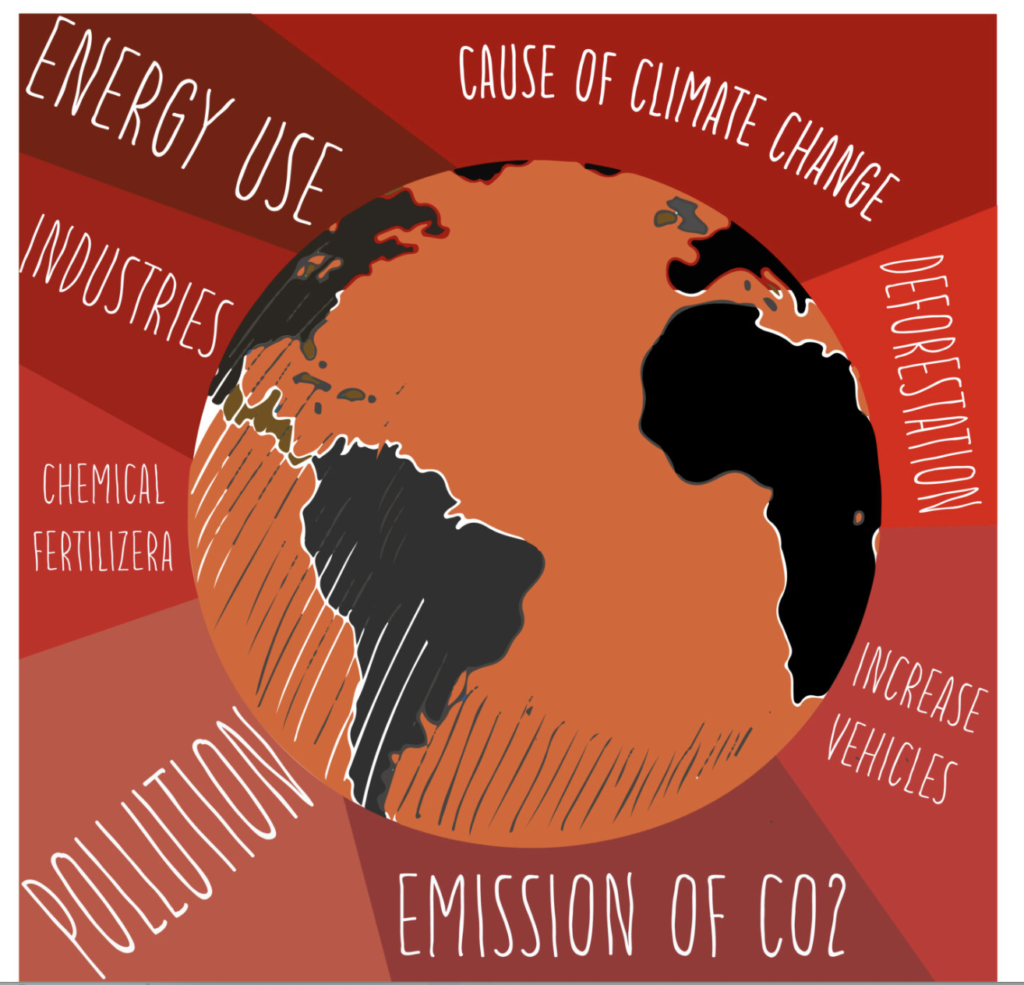
Editor’s note: This article originally appeared in the Tribuno del Pueblo, the bilingual sister publication of the People’s Tribune. Visit http://www.tribunodelpueblo for more of their articles.
If you’ve been paying close attention to the news in 2022, you probably noticed how there were constant stories related to climate change and the disasters it caused throughout the globe. From July 1st through August 31st, Pakistan received 500% more rainfall than average. The country is also home to more glaciers than anywhere in the world – 7,000 glaciers to be exact. With the constant rainfall and the eruptions from melting glaciers it caused ⅓ of Pakistan to become flooded killing 1,700 citizens as well as 69,000 animals. Europe suffered a heatwave causing this year to be one of the driest than any time in the past 5 centuries. This heatwave affected Spain which was plagued by wildfires and destroyed ‘tens of thousands of acres of woodland. A passenger train, near Castellon that was passing by a forest fire, was engulfed in flames resulting in 20 people suffering from burns. Temperatures in the UK passed 40C (104F) for the first time, breaking records. The heatwave in England killed 2,800 people, affecting elderly people the most.
Hurricane Ian was a Category 4 hurricane that affected Western Cuba, Florida and South Carolina just last month, with a casualty of 114 in Florida. Cuba lost electricity as well as 63,000 houses destroyed.
As we wrap up the year, the question remains if we will be able to reach the goal of reducing carbon emissions by 50% by the year 2030. This goal was created by the Paris Agreement, and as of this year US President Joe Biden signed an executive order to rejoin the Paris Agreement after former president Donald Trump had decided to leave it in 2020. Climate change deniers won’t believe the numbers and the scientists who are dedicating their careers to coming up with solutions to climate change.
As well as political issues arising across the globe, the issue of climate change is being tossed to the side to deal with later rather than prioritizing it. Climate related disasters are happening more frequently compared to before, and politicians don’t see the important message in between – that time is running out. Hotter heat waves will spread, droughts will kill more livestock, hurricanes will become more violent and melting glaciers will continue to rise the sea level, leaving coasts and poverty stricken countries extremely vulnerable. A dystopian future where crops no longer grow causing famine across the globe doesn’t seem like a science fiction story anymore, we could possibly be headed there if countries don’t see the value of our planet instead of just looking at it like a money machine.
The government in each country needs to feel the pressure from its people by tackling this problem. It is the wealthy countries that need to take responsibility for being the biggest polluters in the world. Countries like the United States, China, and Russia are behind generating a large percentage of global emissions. Meanwhile, poverty-stricken countries simply aren’t prepared for the climate change catastrophes that will soon follow. They don’t have the infrastructure as other countries do or the financial help from their own government. Just recently, climate change protests have ranged from activists gluing themselves to Goya paintings to them blocking off private planes that were about to take off. Many question the principles behind these protests, when we should in fact be focused on how these protests are just a way to get people to notice the urgent cry that our Mother Earth so badly needs. There is still hope and that alone will create momentum for this fight that needs to be won.
Luz Melissa Cortes Nieto is a Gen X student majoring in Communication with a minor in Journalism. She came to the United States at the age of 7 and has always had a passion for writing and the environment. As a member of El Tribuno del Pueblo Editorial Board, she is the Climate Change Desk. She hopes to bring awareness about climate change and how we can all come together to mitigate environmental consequences.

